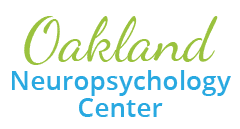Adults with Autism Spectrum Disorders (ASD)
Understanding Autism in Adulthood
Autism Spectrum Disorder is a complex neurodevelopmental condition. In adults, it is often characterized by:
- Difficulties with social interaction and communication
- Intense focus on specific topics or interests
- Sensory sensitivities (e.g., to sound, light, or texture)
- Rigid routines or repetitive behaviors
- Being perceived by others as eccentric or socially awkward
Many adults with ASD can manage daily responsibilities and function independently, but they may continue to face challenges—particularly in social, workplace, and relationship contexts.
The Benefits of Formal Autism Testing for Adults
If you suspect you or a loved one may be on the autism spectrum, undergoing formal testing can be a valuable step. Here’s how it can help:
- Clarification and Self-Understanding: A formal diagnosis can provide clarity and validation, helping individuals better understand themselves and their experiences.
- Identification of Strengths and Challenges: Testing offers a comprehensive look at cognitive functioning, including problem-solving, memory, attention, and social-emotional processing.
- Access to Services and Supports: A diagnosis can open doors to autism-specific resources, such as social skills training, counseling, or community support programs.
- Workplace Accommodations: Documentation from testing can support requests for reasonable accommodations, such as modified communication methods, flexible schedules, or sensory-friendly environments.
- Improved Mental Health: Understanding one’s neurodivergence can reduce feelings of isolation, anxiety, or low self-esteem that may have developed over time.
Is Autism Testing Right for You? If you’ve long felt “different,” misunderstood, or struggled with aspects of daily life despite being capable, you may benefit from an autism evaluation. Testing typically includes an initial consultation with the neuropsychologist, formal neuropsychological testing (typically from 3-5 hours), and follow-up meeting to review your findings and help you with the next steps.
If you have questions about our services or like to schedule a consultation with one of our neuropsychologists, please call (248) 644-9466 or email us through the form on our contact page.


